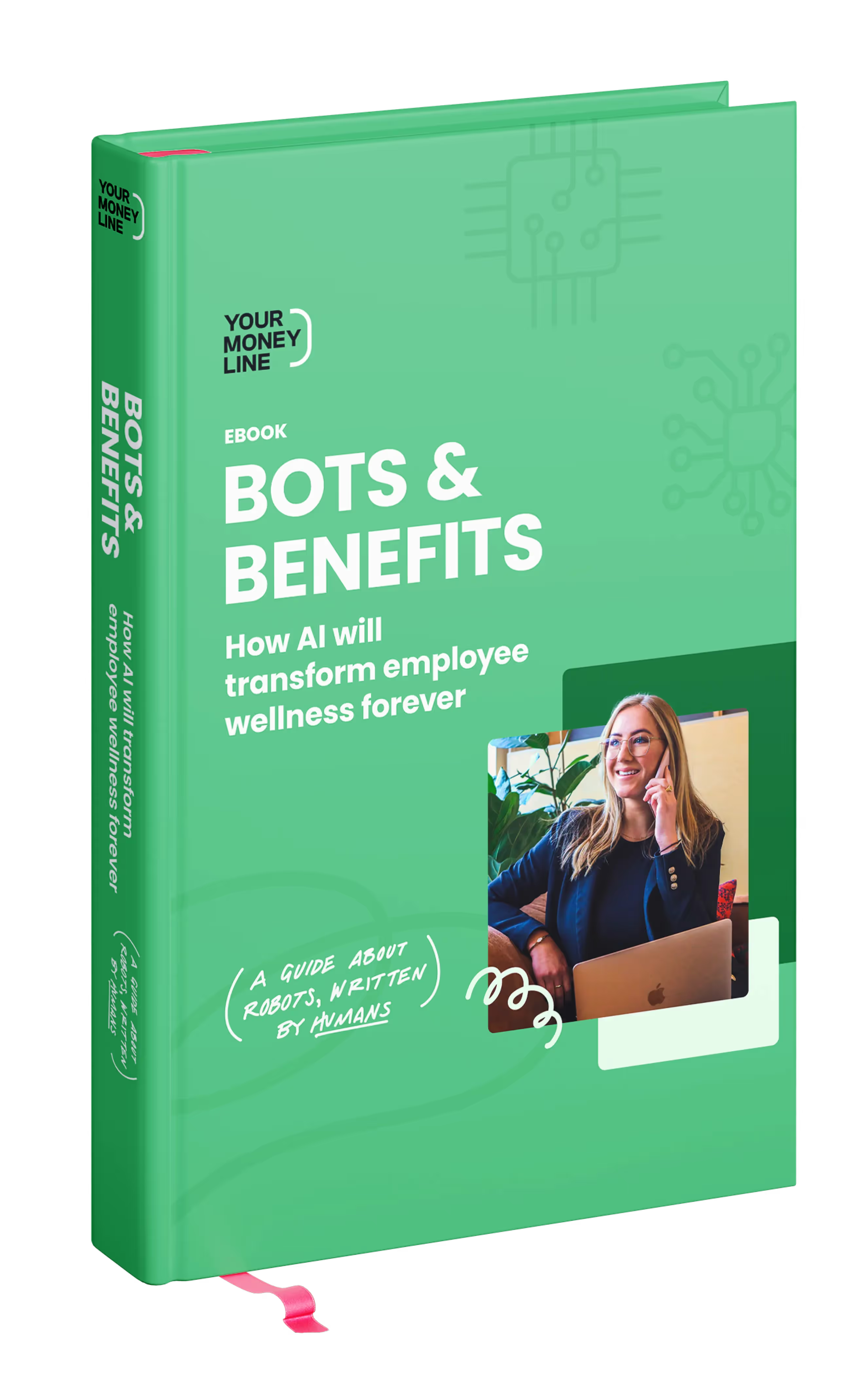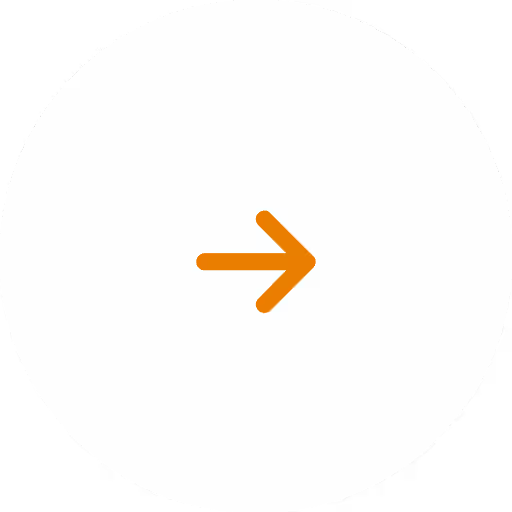Table of contents
Introduction
The impact of AI on your business
AI 🤝 employee wellness
AI and mental wellness 🧠
AI and physical wellness 🏃🏻♀️
AI and social wellness 👯♀️
AI and financial wellness 💸
More AI uses 🤖
Utilize AI today
How AI will transform employee wellness forever
Artificial intelligence (AI) has already taken over your life.
You may not realize it, but AI is already deeply embedded in your daily digital life. When you unlock your iPhone using Face ID, Apple's facial recognition technology is powered behind the scenes by a neural network trained on millions of facial images. Your Instagram feed seems to eerily reflect your interests or Netflix's uncannily accurate recommendations- you’ve seen AI at work. In fact, voice assistants like Siri and Alexa leverage natural language processing to interpret requests, and self-driving cars would be impossible without computer vision algorithms that can detect objects, read signs, and make split-second navigation decisions. AI is, literally and figuratively, already our digital companion.
With the recent explosion of AI, especially popular tools like ChatGPT CHATGPT, AI has been put in the hands of workers across the globe. CEOs, HR leaders, and other execs are now asking questions about how AI will change the workplace. Could AI automate jobs and displace workers? How might it augment human abilities and create new opportunities? Should I let my employees use it at work? Is it safe? Secure? Fair? Equitable. All valid questions.
Here at Your Money Line, we're most excited about the value AI can unlock via employee benefits. Across all elements of wellness—physical, mental, social, and financial health—AI is upending old players and providing infinitely new and more impactful ways to support your team’s wellbeing, at work and at home.
You don't have to be an AI expert to dive deeper into how new technology can help your employees live healthier lives. That's why we created this ebook—to give you a quick look at the newest ways AI is impacting the benefits space. We hope you find it helpful.
Here's to a future of AI used intentionally—not crowding out humanity, but rather making us all a little more well.
The impact of AI on Business
Before we dive into HR…
Let’s talk about what AI is, how it works, and take a look at a few things AI is able to do right now across your business.
Back to the basics—What is AI?
Artificial intelligence is an advanced technology using computers, robots, and algorithms that use real-time data to stimulate human intelligence.
Essentially, AI is programmed to think, act, and respond just like real humans do. Although it isn’t perfect, it does speed up processes, reduce human error, help workflows, make unbiased, smart decisions, research and analyze data, and perform repetitive tasks. AI works by combining large sets of data with intuitive processing algorithms. Here are ten areas of business AI is already touching today:
1. Data analysis: AI can process vast amounts of data quickly and provide insights, trends, and patterns that would be difficult for humans to spot.
2. Automation of repetitive tasks: Tasks like data entry, invoice processing, or basic customer service queries can be automated, saving time and reducing human error.
3. Predictive analytics: AI can predict future outcomes based on historical data, which can be especially useful in areas like sales forecasting or equipment maintenance.
4. Natural Language Processing (NLP): This allows for sentiment analysis, chatbots, and advanced search functions, improving customer interactions and support.
5. Recruitment and HR: Recruiting is time-consuming. By leveraging AI tools, you can find the best-fit candidate more quickly and streamline the overall process.
6. Personalization: Whether it's in marketing campaigns, content recommendations, or user interfaces, AI can tailor experiences to individual user preferences and behaviors.
7. Enhanced decision-making: By providing real-time data insights and modeling various scenarios, AI can aid managers and executives in making informed decisions.
8. Cybersecurity: AI can detect and respond to threats or unusual patterns of behavior more quickly than traditional methods, offering enhanced security measures.
9. Optimized resource allocation: In areas like supply chain management, AI can analyze data to ensure resources are utilized efficiently, potentially saving money and reducing waste.
10. Learning and training: With AI-driven platforms, employees can have personalized learning experiences, and organizations can identify gaps in skills more effectively.
AI 🤝 Employee Wellness
AI is changing the employee wellness game:
Employees are the backbone of every organization, which means employee wellbeing is an integral part of ensuring success at an individual and organizational level. Many companies are beginning to embrace new technologies and explore ways AI can help. AI will be a game-changer for employee benefits in the near future because it will enhance and optimize employee wellness programs.
There are four pillars of employee wellness that every business should focus on:
- Mental wellness encompasses an employee's emotional, psychological, and social well-being. It includes things like stress management, coping with difficult emotions, and maintaining a positive outlook.
- Physical wellness refers to an employee's physical health and fitness. It includes things like eating a healthy diet, getting regular exercise, and getting enough sleep.
- Social wellness is about the relationships that employees have with their colleagues, friends, and family. It includes things like feeling supported and connected to others, and having a sense of belonging.
- Financial wellness is about an employee's financial security and stability. It includes things like having a budget, saving for the future, and being able to afford basic necessities.
Now let’s dive into how AI is/and will impact each of these four areas of wellness and how HR leaders can thoughtfully integrate it into their benefits strategy.
AI And Mental Wellness🧠
Employees are turning to robots for mental health help
68% of people would rather talk to a robot about mental health than their manager at work.
AI is becoming a powerful tool in the mental health space by diagnosing conditions, developing therapies, and creating more personalized approaches and treatments. Although a doctor should still be consulted, mental health AI tools will break down barriers for many people seeking mental health help. Here are a few things happening in the AI and mental health space:
- Virtual coaching and therapy - AI-powered chatbots could make coaching, counseling, and therapy services more accessible and personalized for employees.
- Preemptively spotting possible issues - AI can analyze data such as employee surveys, emails, chat logs, etc., to detect signs of stress, burnout, or other mental health issues. AI can then alert the HR department to intervene.
- Always available services - There are also AI-powered services that provide 24/7 mental health support to ensure accessibility and decrease the stigma associated with mental health.
While AI should not replace human therapists and doctors, it shows promise as a supplement to traditional mental health care by increasing accessibility, privacy, and personalization for those seeking support.
AI And Physical Wellness🏃🏻
Using robots to help us stay healthy?
AI is already prevalent in the physical health space.
AI is finding growing applications in the field of physical health and medicine. From analyzing medical images to predicting disease outbreaks, AI has the potential to transform how we diagnose, treat, and prevent illness and injury. We’ll examine some of the key ways that advances in AI technology are improving patient care, medical research, and public health. AI-powered innovations are enabling more accurate diagnoses, personalized treatment plans, and earlier detection of potential pandemics.
- Predictive risk analysis - By analyzing patterns in employee data, AI could predict the risk of cancer, diabetes, and other chronic illnesses. It could trigger support to employees in need before problems arise.
- Early detection of health conditions - Through data analysis, AI can identify patterns in an employee’s health data which will enable early intervention and treatment of major health risks without patients ever needing to step into a healthcare facility.
- Automated health and wellness tracking - AI wearables and health apps could monitor employee stress levels, sleep quality, exercise, etc., and provide personalized insights and recommendations to improve wellbeing. This allows employees to be more aware of their health and get targeted support.
AI holds exciting potential to transform health care by enabling more preventative, predictive, and personalized approaches - helping people live longer, healthier lives through early detection, risk analysis, and automated health tracking.
AI AND Social Wellness 👯
Robots can positively affect our relationships at work?
AI tools can initiate and help employees make connections with one another
AI can be used for internal communications to detect signals of poor workplace social wellness like low morale or isolation. Below are some examples of how AI will impact social wellness.
- AI for Company camaraderie - AI can be used to start introductory conversations between employees, celebrations of anniversaries and birthdays, water cooler conversations, and so much more to build relationships beyond work in the office.
- Identify changes in emotion - AI that can use sentiment analysis and track behavior patterns to sense, read, and evaluate workers’ emotions.
- Track wellbeing and engagement - Businesses are using emotional AI for recruitment and to track employees’ engagement, productivity, compliance, and overall well-being in the workplace.
- Encourage collaboration - AI tools that can track how well team members interact with each other and collaborate on projects. This helps foster positive work relationships, increase engagement, and increase retention, which contributes to the social wellness of employees.
However, while AI tools for social wellness are promising, they should complement, not replace, human support systems, community-building, and cultural cultivation of belonging at work.
AI And Financial Wellness💸
Robots can make our financial lives less stressful
AI is transforming the way people interact with money
The majority of people are financially stressed, and that stress takes away from employees engaging and being productive at work. AI integrated into employee financial wellness programs is helping companies combat financial stress by not only providing employees with 1:1 financial coaching and resources but the following:
- Personalized financial planning - AI-powered robo-advisors can analyze an individual's financial situation and goals to create customized investments, savings, and retirement plans. This provides tailored guidance.
- Intelligent budgeting apps - Budgeting apps with AI can automatically categorize spending, detect patterns, suggest ways to save, and optimize budgets to match an individual's behaviors and objectives. This automates tracking.
- Predictive analytics - AI algorithms can mine data to predict upcoming large expenses, investment risks, changes in income, etc. This allows people to proactively manage finances.
- Fraud prevention- AI fraud detection systems can identify suspicious transactions, hacking attempts, and financial scams faster and more accurately than humans. This improves security.
- Chatbots for advice- AI chatbots can provide 24/7 personalized financial guidance on spending, saving, debt, taxes, and more to users anytime. This makes assistance more accessible.
Here at YML, we’re pioneering the use of AI in the world of financial wellness benefits. Our new offering, YML Plus, allows participants to view all their financial accounts in one place. Then, AI can review transactions and spending to flag duplicate charges, subscription price increases, abnormal spending, and more. In addition to protecting employees from errors, it can also suggest opportunities for improvement, like debt paydowns or moving money to savings. These suggestions are just the beginning of how we’re using AI in our product to help employees have healthier finances—look for more over the next year!
More AI Uses🤖
Additional uses of AI in the workplace:
AI is touching every aspect of a business, and below are more ways AI is being used in the workplace daily:
- Enhanced benefits platforms- AI could help create personalized and proactive benefits plans for employees based on their needs, life events, risk factors, etc. This ensures employees get access to the right benefits at the right time.
- Intelligent workload balancing - AI scheduling tools could better distribute workloads based on employees' capacities and energy levels to prevent burnout. This promotes sustainable productivity.
- Gamified wellness programs - AI could create personalized fitness and wellness programs with game-design elements to motivate employees to stay active and healthy. This makes well-being fun.
Utilize AI today
Let robots help you right now:
AI is transforming businesses and workplaces already. There are many ways HR can begin utilizing these tools and resources on a daily basis. AI can help HR specifically streamline processes, improve hiring and onboarding processes, and enhance employee well-being and benefits, as we’ve explored. However, the rise of AI is overwhelming, so we put together a few ways you can get started. Depending on your size company, not all of these will be applicable to your business.
Crawl
- Start small in HR with AI point solutions that solve specific problems. For example, use AI for resume screening, analyzing employee satisfaction surveys, predicting retention risk, automating benefits administration, or other focused HR tasks. See what works well before expanding to more complex uses.
- Attend industry conferences and events to learn AI best practices. Conferences offer great opportunities to network with peers and experts—and more and more of them are adding speakers who have expertise in AI. Prioritize one of their sessions to learn more.
- Follow AI thought leaders and companies to stay on top of the latest trends and innovations. Subscribe to blogs, podcasts, and more.
- Consider security and privacy. When evaluating AI solutions, don’t forget to consider your vendor’s security measures and privacy policies. It’s important to partner with vendors that are never selling, sharing, or using personal data for any reason.
Walk
- Provide AI training to your team. Providing AI training to your team enables them to think critically about AI applications and build skills for working alongside AI. Training builds AI readiness and capabilities across the organization. Consider workshops, online courses, and certification programs.
- Audit your data and processes first. Having quality, organized data is critical for effective AI. Assess readiness.
- Define clear AI ethics principles. Include fairness, transparency, privacy, and security in AI system design.
- Use AI chatbots for new employee onboarding and orientation processes, delivering personalized, interactive experiences
Run
- Use AI for resume screening and candidate matching to surface best candidates faster. Set the algorithms to watch for biases and ensure a diverse slate.
- Analyze employee survey results. With AI, you can feed the data you collect to ChatGPT and ask it to generate a summary.
- Use predictive analytics to model retention risk, identifying employees likely to leave soon so HR can be proactive.
- Automate time-consuming administrative workflows like leave requests, approvals, scheduling, and more.
- Implement voice analytics to analyze call center conversations and derive insights to improve customer and employee satisfaction.
- Automate learning recommendations and suggestions based on skills gaps and employee interests.
The key is to get hands-on experience, build in-house skills, and move forward thoughtfully, focused on business goals. AI adoption is a journey, not a one-time event. With the right approach, AI can transform your organization. In the world of HR, AI will help everything from automating processes to employee benefits utilizing AI to improve employee wellness. Whether you’re a Fortune 500 company or a small startup, AI doesn’t have to be a threat. It can and will become your new best friend in the workplace.






